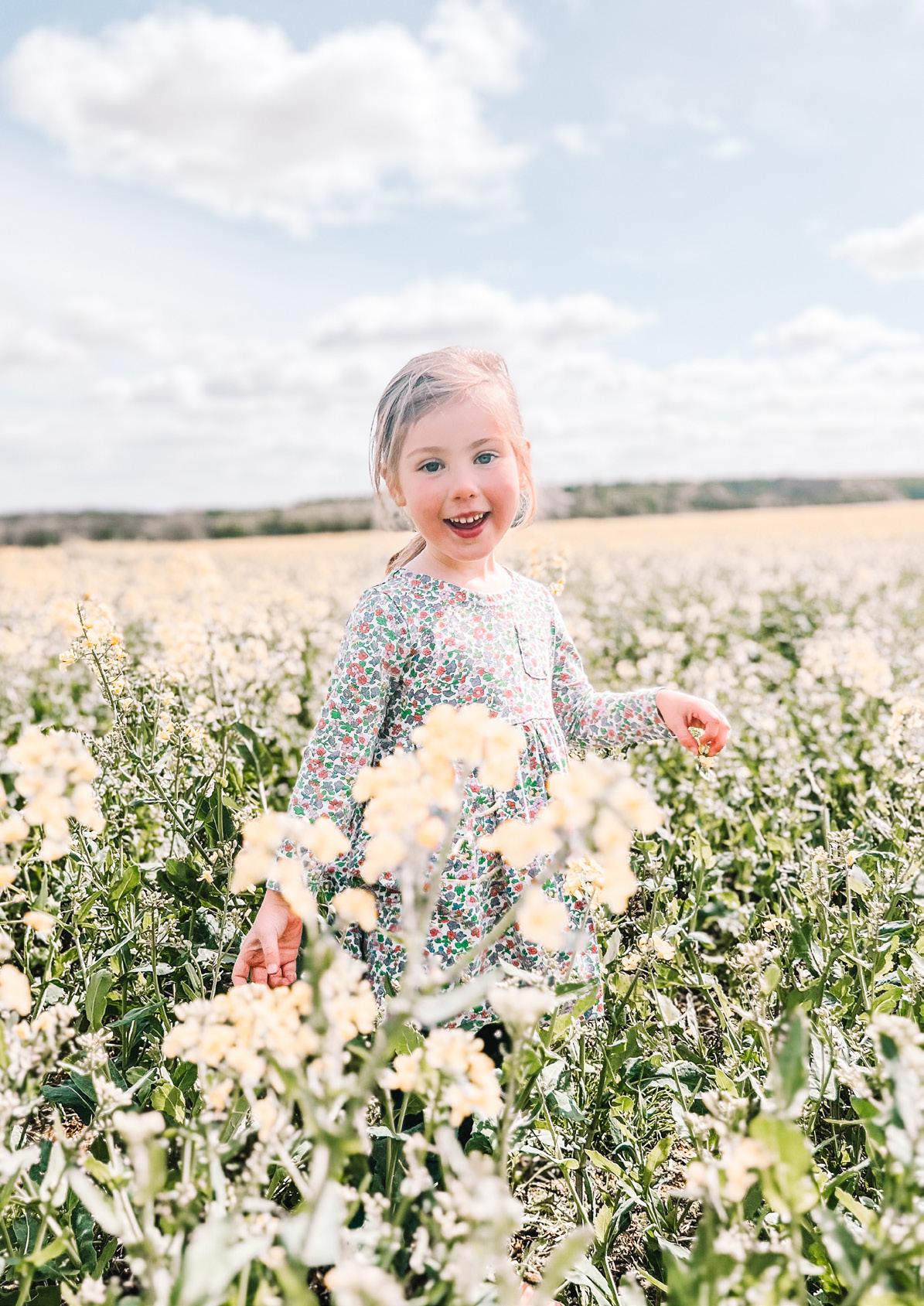

Issue 118 May-June 2024 Familiesonline.co.uk Education What’s On Family Law FREETakeMeHome IN THIS ISSUE
N orth Yorkshi re


Contact us
Carla Finlayson, editor
E: editor@familiesnorthyorkshire.co.uk
T: 07734 690020

@FamiliesNYMag


@FamiliesNYMag
@familiesnorthyorkshiremagazine
Welcome
Are you all set for the warmer weather? Summer is officially just a few weeks away…!
If you are looking for ideas to keep the kids busy during half term then take a look at our latest what’s on guide, so many great ideas for the whole family.
Is reading a battle in your home? Why not check out our article on choosing a reading book to find hints and tips to encourage a love of reading with your child.
Are birthday party invites coming thick and fast? Take a look at our suggestions of eco birthday gift ideas and give something that is a little kinder to the planet this year.
Finally, in this issue, we have a Smoby Flower Market Creations Kit to giveaway! Apply inside. By doing so, you’ll also ensure you receive our digital magazine with lots more content and goodies on offer.
Carla xxx
The paper used in this magazine is made with or contains forest-based materials from FSCcertified forests and its use will not have harmed forests.
Would you like to advertise your business in our next issue?
BOOK TODAY
Call Carla on 07734 690020
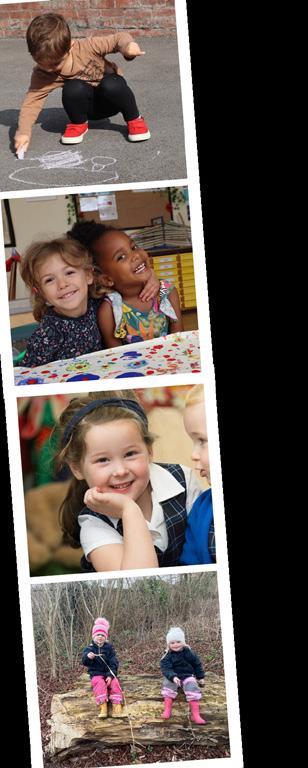
January/February issue competition winners Congratulations to all our winners. You can find a
at www.bit.ly/JF24recipients
Families is a registered trademark of LCMB Ltd, Remenham House, Regatta Place, Marlow Road, Bourne End, Bucks SL8 5TD. The contents of this magazine are fully protected by copyright and none of the editorial or photographic matter may be reproduced in any form without prior consent of Families Print Ltd. Every care is taken in the preparation of this magazine but Families Print Ltd, its distributors, franchisees and LCMB Ltd cannot be held responsible for the claims of advertisers nor for the accuracy of the contents, or any consequences thereof.


Familiesonline.co.uk Families North Yorkshire 3 CONTENTS
In this issue 4. Education 8. What’s on 10. News 12. Parenting 13. Health 14. Early Years 15.
Law 16.
Family
Birthdays
The Mount School York PRE-SCHOOL & RECEPTION 2024 JOIN OUR NEW CO-ED CLASS ENROL NOW mountschoolyork.co.uk
list
Supporting your child’s memory retention
By Erin Miller
Does your child struggle to remember things they have learnt at school? Cognitive science can help us to understand how our children’s brains work and how they will learn best.
In order to remember, we need to store information in our longterm memory. Around thirty years ago, Australian psychologist John Sweller published a paper which has significantly advanced our understanding of how information passes from the working memory into the long-term memory. The theory that came from his work is called Cognitive Load Theory (CLT) and it is worth having a basic understanding of the theory, so that we can support our children when they are struggling to remember information they learn.
When a child first learns new information, it is held in their working memory. The working memory is limited and if it is overloaded, it becomes very difficult to transfer that information into the long-term memory.
Sweller estimated that only five to nine items can be held in the working memory at any one time. Interestingly, it is thought that the long-term memory is unlimited in its capacity. So, to give your child the best chances of success in both formal exams and in being creative, we must help them to shift information into their long-term memories. Once information is stored there, it can be retrieved when it is needed and has therefore been
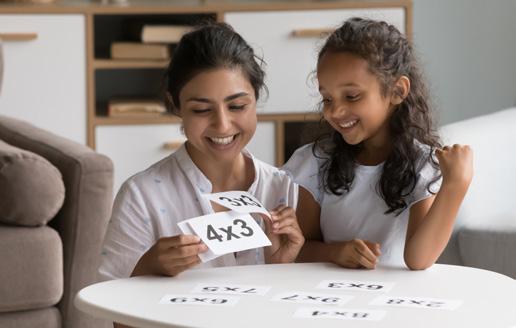
retain information for longer. Chunking involves breaking down information into smaller (bitesize) chunks. By focusing on just one idea at a time, children are able to digest and recall the information.
Whilst this may sound simple and even obvious, breaking down information into chunks can be tricky, as they often need to be even smaller than you might imagine. For example, in answering a question about history, consider how many bits of micro information that your child will need. Try to keep information in the five to nine range.
Ultimately, CLT has helped educators to design learning to support the way that children’s brains work. This is, of course, largely the job of your child’s teacher. However, when parents understand and arm themselves with this knowledge, they can use it to support their child’s learning at home and help them flourish at school.
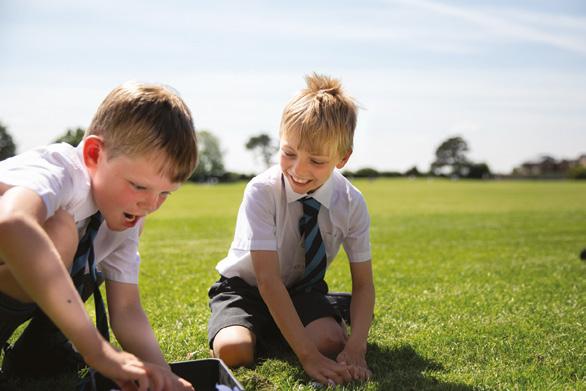

Wednesday 5th June 2024

Pocklington School’s renowned emphasis on pastoral care as part of an individually focused education ensures pupils feel valued and grow in confidence. Right through from Prep School, with its emphasis on nurturing children’s natural curiosity, imagination and enthusiasm for learning, to the Sixth Form, where independent thought is prized, our pupils are encouraged to be resilient and resourceful learners. We look forward to extending a warm welcome to you and your family.
Erin Miller is a teacher with a keen interest in how research can be used in the classroom to improve learning.
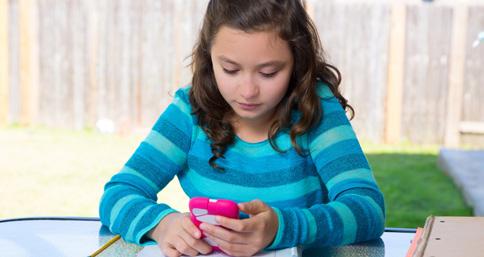
Start by removing the technical distractions
Working memory is proof of our limited attention span. Our children are surrounded by modern technology which can overload their brains. Webpages and apps with lots of functions, images and options are likely to overload cognitive capability; research has shown us that simpler designs work better when it comes to memory.
Therefore, when you’re focusing on getting your child to remember something, try to eliminate distractions. This starts with removing technology. A mini whiteboard at home can be helpful in presenting just one piece of information at a time.
Where technology is necessary for the learning task, ensure only the relevant window is open. When messages or notifications are popping up, this takes up space in your child’s working memory. Multi-tasking is a myth when it comes to learning and remembering new information.
Ultimately, when your child is struggling to understand or remember something, one of the most helpful things you can do is to remove technology and start working on paper.
Familiesonline.co.uk Families North Yorkshire 4 EDUCATION
Open Day 01759 321200 www.pocklingtonschool.com admissions@pocklingtonschool.com Discover, Flourish, Belong. Pock School_Families (87x130mm) Open Day June.pdf 1 15/04/2024 18:09
Choosing a reading book
By Zuzu Jordan
‘I don’t like reading’ are words parents dread to hear and battle to change and in such households, reading can become a non-negotiable, timed and recorded homework chore. Yet we all strive to mould children who want to read, for pleasure, which becomes increasingly difficult to achieve when we have to compete with modern devices.
So how do we encourage a love for reading and books?
It starts with knowing how to match reading material to the child. When children are given complete free rein in choosing a book, sometimes it can be overwhelming.
Forgive the cliché but they often ‘judge a book by its cover’ or pick a book they find too challenging to actually read and end up giving up on it all together. Children need just as much support in choosing a book as they do reading one.
Try some of these techniques next time they seem stuck in choosing something:
Five finger rule. Ask them to read the first page of a book. If they struggle to read more than five words on that page then the book doesn’t suit them YET!
Try different genres. Not all reading has to be fictional. Expose children to non-fiction in the form of child-friendly newspapers or information text on a subject they might be interested in.
Find an author your child likes and research other works by the same author.
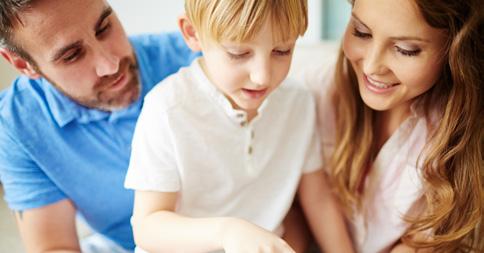
Reading comprehension
Becoming a confident reader is more than just decoding words or ‘barking’ at the text. Children who can seemingly read fluently can lack understanding which may go undetected.
There are different types of questions you can ask which will help your child to develop their comprehension of what they read. For example: retrieval questions, vocabulary questions, inference questions, prediction questions, summarising questions, author choice questions and giving opinion type of questions. All these questions are worded to encourage your child to interact with the text on a deeper level.
In order to answer comprehension questions, your child needs to learn to scan a text quickly. Viewing reading passages in chunks or paragraphs will make this less overwhelming for them and looking for key words and numbers will certainly help with retrieval type questions. Most other questions require evidence and therefore actual examples from the text. When you are reading with your child, ask them for evidence of their opinions on characters, plot, setting and vocabulary.
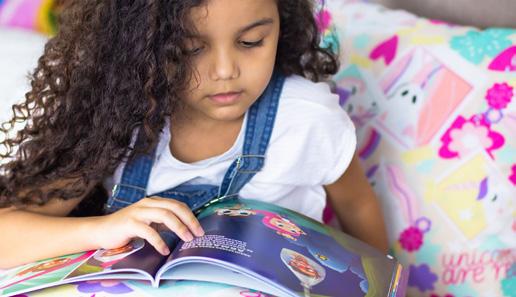
Listen to the audio version. Listening to someone else read can motivate children to read the book themselves.
Use organisations like Book Trust and CLPE (Centre for Literacy in Primary Education) which have created recommended book lists for different age groups.
Find out what they are reading in school. What other books are similar? Which other books did the same author write?
Meet the author. Getting a signed copy and meeting the author can encourage children to read. Look out for events at your local book shop.
Apply for the Blue Peter Book Badge which requires children to read a book and submit a review.
Zuzu Jordan is a Mastery for Maths specialist who has taught primary aged children for sixteen years and is interested in early years and home learning. For free homework and home learning resources, find her on Instagram at edumate_uk

Audio books
Technology has progressed so much in recent years that playing audio books for children has become easier. Although as parents we would like them to actually read the book, there are many benefits to listening to someone else reading.
Of course, children need to develop the ability to decode words and read independently with stamina. But audio books can be convenient and just as portable as the paper versions. In fact, you can carry more books in your pocket when they are in an audio format and take them anywhere: in the car, bedroom, aeroplane and even the bath!
A narrated story can increase your child’s interest in a book, particularly if different voices narrate the characters.
Audio books also help with language development as children will naturally be exposed to more vocabulary and books that they may not be able to read yet.
Reading along with the audio is a great tip! If you all listen to the same audio book, you can share the same experiences which naturally opens up dialogue.
Familiesonline.co.uk Families North Yorkshire 5
EDUCATION
Broadening your child’s vocabulary
By Jemma Z Smith
Vocabulary development is often something that parents mention when they approach a tuition company. Unfortunately, this area of learning does not have a ‘quick fix’ solution. Vocabulary acquirement, retention and application takes a long time.
Children need to be exposed to new vocabulary several times in several different contexts in order to fully absorb it and use it in their own writing and speaking, recognise it in a range of uses and be able to adapt it (for example, adding prefixes and suffixes) when questioned in a test environment.
Vocabulary is a vital aspect of primary education, especially for pupils preparing for entrance exams. A rich vocabulary not only enhances language skills but also serves as a key tool for academic success.
Understanding words in various contexts is fundamental for primary pupils. It allows them to grasp the meanings and usage of words, which helps to improve their comprehension skills.
Additionally, a strong vocabulary assists in spelling tasks, making children more aware of homophones and homographs, thus avoiding common pitfalls in their writing, particularly in time pressured test conditions.
For example, in some verbal reasoning papers, children may be presented with a choice of synonyms to match together: wind, reign, meander. In this example, wind (verb) and meander are synonyms but the child may read it as wind - the noun - due to its position next to a word that sounds like another type of weather but is spelt differently.

Categories of vocabulary
Vocabulary can be categorised into three tiers. It is useful to be aware that vocabulary absorption may happen at different levels, depending on how often the child has been exposed to the new word and what tier it comes under. Here are some examples and how to help.
Tier 1 vocabulary consists of basic, everyday words that children typically acquire naturally through daily interactions. Reading aloud to children and engaging in conversations expose them to these fundamental words, building a solid foundation for communication. Examples include: warm, dog, cereal.
Tier 2 words are more sophisticated and are often encountered in written language. Reading independently exposes children to this level of vocabulary, helping them grasp nuanced meanings and enhancing their ability to express themselves more eloquently. Examples include: contradict, precede, commotion.
Entrance exams often assess Tier 3 vocabulary, which includes subject-specific or technical terms. Encouraging children to explore a variety of texts, including academic materials related to their interests, helps them build a specialised vocabulary crucial for exam success. Examples include: molecule, photosynthesis, aorta.
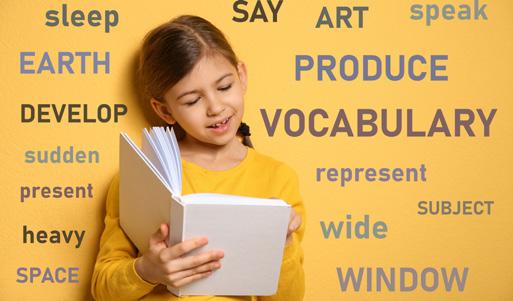
Having a broad vocabulary proves invaluable when preparing for entrance exams as it enables children to infer meanings and understand the overall message of a text without constantly referring to a dictionary, which although a useful skill, can break the flow of reading.
Encouraging reading for pleasure is a powerful strategy to improve and develop children’s vocabulary. Parents should emphasise the importance of reading anything and everything, from storybooks to comic books, menus during meals and signs while out and about. Such diverse reading opportunities expose children to varied language structures and expressions, contributing significantly to the expansion of their vocabulary banks.
If you can convince them to read some of the classic works of Dickens and perhaps some JRR Tolkien, that is great but all reading material can be useful.
Jemma Z Smith is Director of The Education Hotel. For further advice, visit www.educationhotel.co.uk
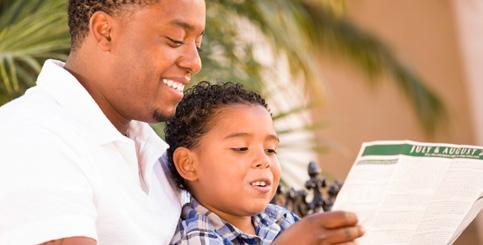
Reading with your child
Reading to your child and encouraging independent reading both play important roles in shaping vocabulary and overall academic success.
When parents read to their children, they introduce them to a rich and varied language, using texts that they may not yet have the ability themselves to read; but they can still enjoy the entertainment factor and absorb the rich vocabulary used.
Children love to feel involved in what the ‘grown ups’ are doing and this can be true quality time shared. The shared experience fosters a love for stories and language, laying the groundwork for a lifelong appreciation of reading.
Encouraging children to ask questions about what they have heard, searching for similarities between other authors’ work or other characters who may be similar, again broadens their vocabulary and helps them to consider how vocabulary can be used in different contexts for a different impact.
This could also be an opportunity to use audiobooks and ageappropriate podcasts, perhaps on the way to and from school, before bedtime and at the weekends.
Familiesonline.co.uk Families North Yorkshire 6 EDUCATION
Top new children’s books from around the world
By Sarah Campbell
From bustling African cities to the Australian Outback via Asian high seas, these extraordinary stories will transport children around the world, broadening their horizons and inspiring empathy and understanding along the way. The following recommendations are for young readers ages 5 to 12.
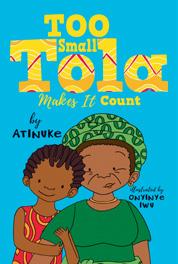
Too Small Tola Makes It Count by Atinuke
Tola may be small but she’s very determined!
This collection of three connected, fun stories feature Tola’s life in bustling Lagos with her clever sister, speedy brother and bossy grandmummy. Discover how there really is no problem too big for Too Small Tola. Ages 5+.
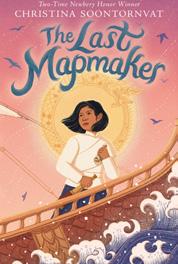
The Last Mapmaker by Christina Soontornvat
Follow Sai, a 12-year-old heroine who is seeking to chart her own destiny in a world of secrets. Taking off for a thrilling high-seas expedition, this is a vivid adventure set in a Thai-inspired fantasy world. Ages 8+.
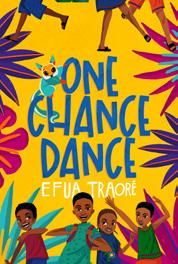
One Chance Dance by Efua Traor
Lagos is no place for a boy and a bush baby but things start to look up when young Jomi meets a crew of street kids and together they come up with a plan. A heart-warming story of friendship, wonder and dance set in lively Nigeria. Ages 8+.
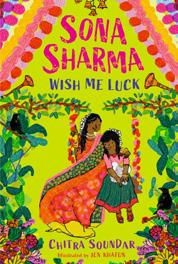
Sona Sharma, Wish Me Luck by Chitra Soundar, illustrated by Jen Khatun
Sona Sharma lives in India with her busy family, where she learns about the ups and downs of family, friendship and life. A warm and gentle illustrated chapter book set in colourful India, packed with empathy and humour. Ages 5+.
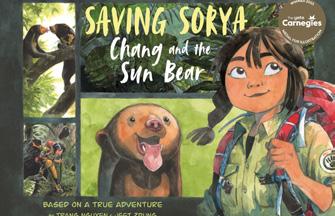
Saving Sorya: Chang and the Sun Bear Trang by Trang Nguyen & Jeet Zdung
Written by scientist and environmental activist Trang Nguyen, this inspirational graphic novel is based on a true story about a young conservationist who overcomes the odds to save a sun bear in Vietnam. Ages 8+.
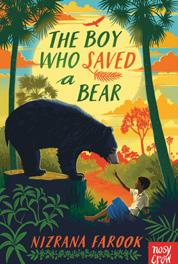
The Boy Who Saved a Bear by Nizrana Farook
A boy and a big, hairy bear meet, become friends and have the adventure of their lives, thwarting the plans of some very dangerous thieves. Young animal lovers will be gripped by this adventure set in a fictional Sri Lanka. Another brilliant escapade from the author of The Girl Who Stole an Elephant. Ages 8+.
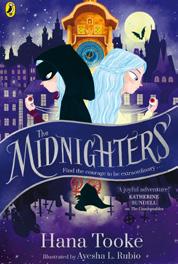
The Midnighters by Hana Tooke, illustrated by Ayesha I. Rubio
A ghostly tale about two friends, one murder mystery and a world of intrigue. I love the mysterious, richly gothicinspired European setting of this entertaining and magical adventure. Find out what it takes to find the courage to be extraordinary. Ages 5+.
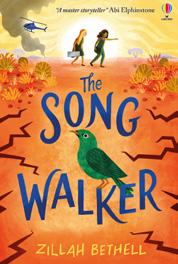
The Song Walker by Zillah Bethel
A girl is found wandering through the Australian outback with mismatched shoes and a violin case. This great adventure with a twist
is an extraordinary, spiritual story of friendship, discovery and courage. Ages 8+.
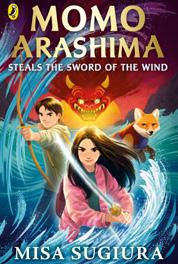
Momo just wants an ordinary life but she is half human, half Shinto goddess and evil spirits are threatening to escape and destroy humanity. A thrilling Japanese-inspired fantasy adventure full of action, adventure and even a talking fox. Ages 9+.
Sarah Campbell is co-founder of Parrot Street Book Club (www.parrotstreet.com), an online children’s bookshop offering a handpicked collection of high-quality children’s chapter books, plus an award-winning monthly book subscription for ages 5 to 14.
Familiesonline.co.uk Families North Yorkshire 7
Momo Arashima Steals the Sword of the Wind by Misa Sugiura
FOR AGES 5+ EDUCATION
May/June
What’s On?

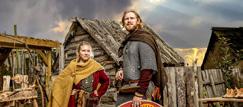
Viking Fun
JORVIK Viking Centre
Travel back to the year 975 AD at the JORVIK Viking Centre!
A world-famous ‘must-see’ visitor attraction in the heart of York city centre.
Bridlington Kite Festival
Sewerby near Bridlington
From flying frogs to sky-high snakes and leaping lizards to daredevil dragons, scores of exotic inflatables will add a splash of colour to the cliff tops above the popular seaside resort of Bridlington.
Colours Uncovered
Harewood House
Discover the hidden histories of colours within the celebrated arts and crafts collections, see the first colours of spring in the stunning gardens and enjoy colourful artist-led interventions and activities across Harewood.
Malton Food Lovers Festival
Malton
Expect artisan stalls, delicious street food, talks, tastings, celebrity chefs, demos, festival bar, live music & much, much more!
Around the World in 80
Stories
Lotherton Hall
Head to Lotherton Hall this half term for crafts, storytelling and adventures inspired by tales from across the globe.
Lost Boys at Mother
Shipton’s Mother Shipton’s Cave
Embark on an adventure like no other as you explore themed displays inspired by the wild children from the beloved story of Peter Pan. From shipwrecks to pirate hideouts and fairy-themed displays, pose amidst scenes straight out of a story book.
Mayhem at Piglets
Piglets Adventure Farm
Enjoy a family day out at Temple Newsam and have a go at crafting a unique, handmade gift for someone special.
Dino Live Thornton Hall Country Park
Dino Live brings live life like dinosaurs and a live action stage show with our very own park rangers. Full-on fun for the whole family. special.
Family Gardening Festival
RHS Garden Harlow Carr
Explore a year of family gardening: handy tips on what to do and when, allowing everyone to get gardening together. Throughout the garden.
Kids Rule!: Dracula at Whitby Abbey
Whitby Abbey
Head to Whitby Abbey for hands-on activities and freshair family fun. Whitby Abbey is famous for being one of Bram Stoker’s inspirations for Dracula. This half term, be inspired and create your own Gothic tale.
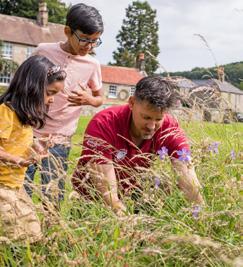
The Wild West Quest
Danby Lodge National Park Centre
Join the BioBlitz, family friendly surveys, to help the wildlife experts learn more about the plants and creatures that live at the National Park Centres.
Storytelling, Play and Performance with Bidi Iredale
Danby Lodge National Park Centre
Join performing artist and storyteller Bidi Iredale in the Inspired by… gallery to explore the stories of the This Diverse Landscape exhibition on display. Bring the art to life through storytelling, play and performance which Bidi will guide you through.

York Festival of Ideas Various locations across York York Festival of Ideas promises to spark children’s imaginations with a huge variety of mostly FREE family events and activities. Enjoy an interactive concert for tiny tots, explore science through art, hunt for masons’ marks in a 500-year-old tower and discover the different ways languages are used at a storytelling session.
Why not venture into the Discovery Zone, where you can meet robots, walk in space or find out some fun facts about British animals?
Always a firm favourite, the Festival Fringe Family Fun Afternoon will offer creative, crafty, puzzling, scientific and historical fun. Or if you prefer the great outdoors, put your best foot forward and follow one of the many family-friendly walking trails on offer.
Finally, be sure not to miss War Horse: The concert with acclaimed children’s author Michael Morpurgo, back at the Festival by popular demand after performing to a packed audience last year.
Find out more at: yorkfestivalofideas.com
Great Knaresborough Bed Race
Knaresborough Bed Racing is a muchloved annual past time in Knaresborough, combining as it does a gruelling athletic contest with a spectacular fancy dress parade of decorated beds and runners.
Tractorfest
Newby Hall & Gardens
With over 1,600 exhibitors and a host of entertainment, crafts, food & drink Tractorfest is a great day out for anyone, of any age interested in farm or industrial machinery.
Father’s Day Crafts
Temple Newsam
Enjoy a family day out at Temple Newsam and have a go at crafting a unique, handmade gift for someone special.
Monster Trucks 2024
Thornton Hall Country Park
If you are after a MONSTER family day out then why not visit the Monster Trucks at Thornton Hall Country Park for some spectacular, thrillcrushing live shows. special.
Help the Ranger: BioBlitz Fountains Abbey & Studley Royal
Become a wildlife explorer for a day and help the rangers with a BioBlitz through Fountains Abbey and Studley Royal, hunting for all the different wildlife that live there.
Harrogate Food & Drink
Festival
The Stray, Harrogate Live chef demo’s, Artisan Market, Live Music, Free Kids activities, Fun Fair and so much more.
Summer Picnic
Temple Newsam
Bring a picnic and enjoy a special day out at Temple Newsam with crafts, refreshments, and entertainment for all the family.
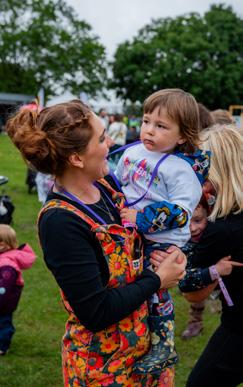
1940s Weekend
Lotherton Hall
Family-friendly tribute shows will be held in the beautiful surroundings of the gardens and will feature songs and dance from the 1940s, evoking the wartime spirit of World War II entertainment.
Baby Band Music Festival Lotherton Hall
The Baby Band Music Festival is your passport to a summer day filled with the sweet sound of family fun, live music and unforgettable memories - proper music, great bands, and absolutely no nursery rhymes.
All listings are correct at the time of publication. Please check with the venues before you visit incase anything has changed Ongoing 18 - 19 May 22 May - 9 June 25 - 27 May 25 May - 2 June 25 May - 2 June 25 May - 2 June 25 May - 2 June 25 May - 2 June 25 May - 2 June 29 May 1 - 14 June 31 May 8 - 9 June 15 - 16 June 15 - 16 June 15 - 16 June 16 June 29 June 29 June
8 June
21 July
WHAT’S ON Familiesonline.co.uk Families North Yorkshire 8
Theatre
The Wizard of Oz
Joseph Rowntree Theatre, York
The timeless tale, in which a young farm girl travels from Kansas over the rainbow to the magical Land of Oz, continues to delight audiences across the generations.
Rapunzel
Bridlington Spa
Packed with songs, dance routines and jokes a-plenty, there is something for everyone to love, so book your tickets now for this critically acclaimed family production.
24 - 26 May
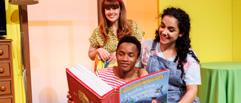
Charlie Cook’s Favourite Book - Harrogate Theatre
Charlie loves reading. Especially books about pirates. But his sister hates it – it’s boring! Can Charlie convince her that reading is fun? Perhaps if she read a book about a pirate, who is reading a book about Goldilocks, who is reading a book about a knight…

Treasure Island
Bridlington Spa
All aboard the Jolly Roger for a swashbuckling pantomime adventure like you’ve never seen before ‘Treasure Island.’
There was an old lady who swallowed a fly
Stephen Joseph Theatre, Scarborough
In this enchanting stage adaptation, aliens from a distant planet have crashlanded on earth and need our help to get home. But there’s a problem. Their rocket runs on stories, not fuel, and only the greatest story in the universe will be enough to save them... seen before ‘Treasure Island.’
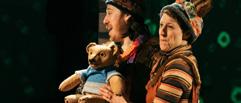
Deep in the forest live Mammy, Daddy and Baby Bear. Each day the Three Bears head into the woods to collect interesting things to re-use in their home. Soon their cosy house is turned upside down by a colourful whirlwind that threatens to sit in their chairs, eat their porridge and sleep in their beds. It’s Goldilocks!
The Showstoppers’ Kids Show
York Theatre Royal
The Showstoppers’ Kids Show takes your kids’ ideas and turns them into marvellous, musical adventures from scratch, in front of their very noses.
1 June

Amazing Animals York Theatre Royal
A show dedicated to and celebrating all creatures great and small. The only show around where you get to see life-sized crocodiles, sloths, reindeer, dinosaurs, penguins, orangutans and maybe even a spraying skunk bursting out onto the stage right before your very eyes.
7 July
Into the Woods Harrogate Theatre
Upstage Academy welcomes you to this modern twist on the Brothers Grimm fairy tales the heartfelt musical follows the classic tales of Cinderella, Little Red Riding Hood, Jack & the Beanstalk and Rapunzel Join the Baker and his wife to lift the curse bestowed upon them by the wicked witch with our own unique twist on this incredible musical.


Explore the Viking-age settlement of Jorvik, smell how life would have been 1000 years ago, and see actual archaeological finds discovered on
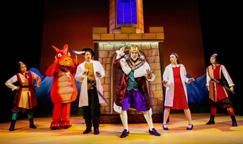
Zog & the Flying Doctors Grand Opera House York Zog, super keen student turned air-ambulance, still lands with a bang-crashthump. Together with his Flying Doctor crew, Princess Pearl and Sir Gadabout, they tend to a sunburnt mermaid, a unicorn with one too many horns and a lion with the flu. However, Pearl’s uncle, the King, has other ideas about whether princesses should be doctors, and she’s soon locked up in the castle back in a crown and a silly frilly dress!
Harrogate High School, HG1 4AP
29th June: 2 - 4 pm
7th September: 2 - 4 pm 9th November: 2 - 4 pm harrogate@
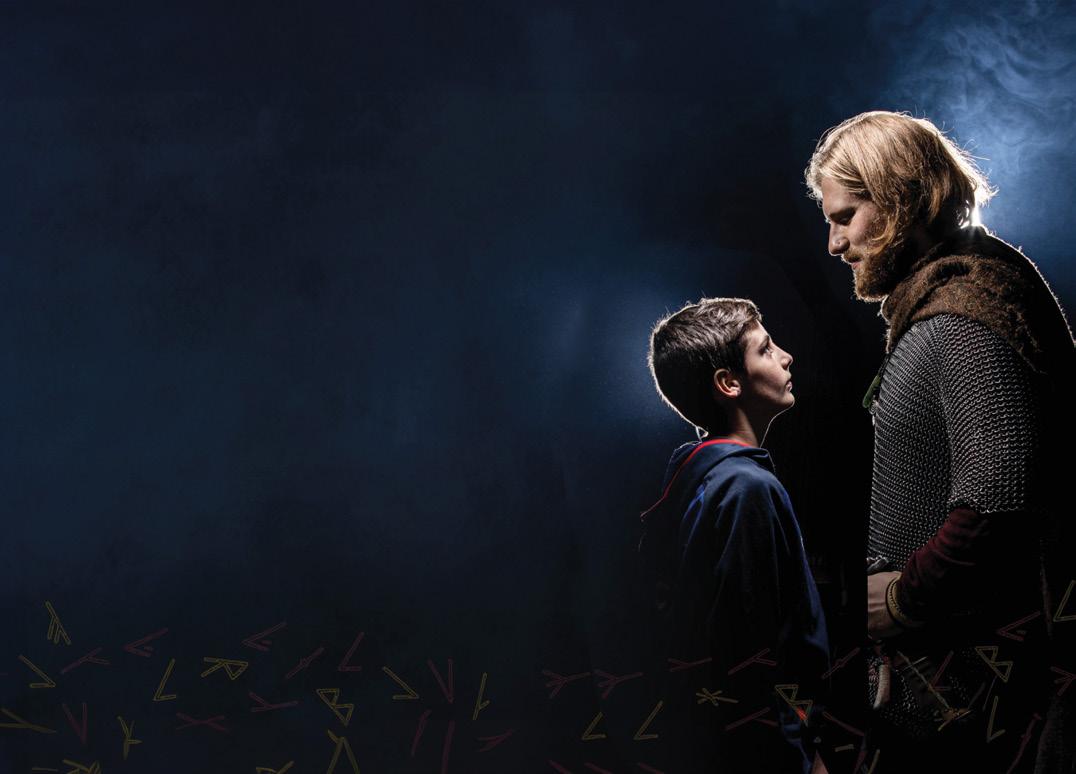
The most immersive Viking museum in the UK. Book now at jorvikvikingcentre.co.uk
location.
The Three Bears York Theatre Royal
22 - 25 May 25 May 29 May 30 May 5 - 7 July 27 May 28 May
mum2mummarket.co.uk Mum2Mum Markets WHAT’S ON Familiesonline.co.uk Families North Yorkshire 9
Baby FestivalBand
Calling all music fans – get ready to rock your socks off at the Baby Band Music Festival this summer! Don’t let the name fool you, this family-friendly music festival is not about nursery rhymes. Featuring some of the best local bands and acts, it’s a full-on musical adventure for everyone, from the littlest tikes to the coolest grandparents.

Baby Band firmly believe that music is for everyone, no matter how old you are. They want kids to experience the magic of live music from the get-go, and create memories that families will cherish forever. There are fantastic activities for the whole family. A brilliant artisan market filled with the best local traders, delicious food and you can even have a G & T!
This year, the festival is back at the historic Lotherton Hall and promises to be bigger and better than ever before. Mark your calendars for Sunday, July 21st, 2024, and get ready for a day filled with fantastic music, family fun, and memories that will last a lifetime.
Complete your purchase on the Leeds Ticket Hub website.
Out and About with Jenson, our Roving Reporter for this issue.
Jenson [7] lives in Tadcaster with his Mum, Dad & little brother Finn. In this issue he is going to share his review of a day out at Harewood House, Leeds.
We met our friends at Harewood House during the school holidays. First we played at the park going in and out of the tunnels and I went down the slides. My little brother, Finn, was playing in the little play area.

We walked to the courtyard cafe and had hot chocolate, it was nice and hot with some good colouring in sheets too!
Then we walked round the lake doing the Easter trail, spotting eggs. When we got to the other side we played Easter games. I was good at the hula hoop and the egg & spoon race.
We had a picnic on the benches near the gardens and watched the ducks and swans.
We went back on the boat across the lake. The driver of the boat was very friendly and said we were going 16mph and that he had done 56 trips so far that day. It was so fun on the boat!
We walked down to the bottom of the play area and built a den with sticks and branches. It was really cool! Then we climbed up the climbing frame right to the top and we went down the slide.
I can’t wait to go back to Harewood House soon.... I gave it a 10/10 for a fun day!

If your child would like a chance to be one of our Roving Reporters then please email a review of one of their favourite places to visit in North Yorkshire along with a photo and a little about them to editor@ familiesnorthyorkshire.co.uk. We can’t guarantee that all reviews will be used.
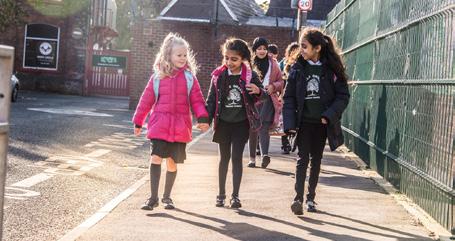
Join in during Walk to School Week
A generation ago, seventy percent of us walked to school – now it’s less than half. So Walk to School Week was started to encourage more kids to get out of the car and walk to school.
Walk to School Week is held from 20 to 24 May and is organised by the UK charity Living Streets to celebrate the health and wellbeing benefits of walking.
Families will be encouraged to walk, cycle, scoot or Park and Stride to see the big differences that can come from small steps - from healthier and happier children who arrive refreshed, fit and ready to learn - to less congestion and fewer cars outside the school gates. Download the Family Walk to School Kit, designed to help parents, carers and children make the walk to school work for them, by visiting www.livingstreets.org. uk/walk-to-school
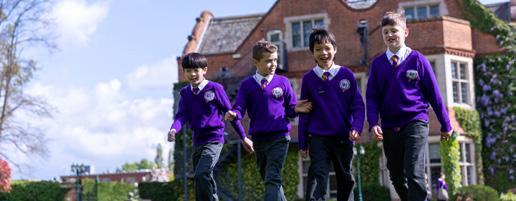
Tailored Transitioning at King’s Magna Middle School
After Year 5, most students are ready for a new challenge. This is why we tailor our Year 6 curriculum around senior school transitioning. Whilst our Year 6 students continue to have a designated classroom with specialist Year 6 teachers for English, Maths, Humanities and Personal Development across a topic-based curriculum, other classes including sport and performing arts are taught by specialist subject teachers across the campus. This allows our students to achieve a higher level of knowledge in specific disciplines and to prepare for optional academic, sport, or art pathways within a programme that supports a gradual introduction to senior school life.
Whilst most schools focus Year 6 study on the Key Stage 2 SATs, we forgo these tests and reassign that time to preparing for Key Stage 3 and beyond, the results of which can be seen in how highly our senior schools perform in GCSEs and A Levels each year. Our extra year of tailored learning creates space within the curriculum for computer science, three modern languages and two options where we can emphasise skills such as critical thinking, effective study and revision, collaboration, creativity, and entrepreneurship.
Familiesonline.co.uk Families North Yorkshire 10
NEWS

Clean Air Day
Participating in National Clean Air Day on 20 June allows your family to contribute to the collective effort of improving air quality and creating a healthier environment. Here are some impactful ways to get involved:
Reduce Vehicle Emissions: Choose alternative modes of transportation such as walking, cycling, or using public transport whenever possible.
Support Clean Energy: Advocate for and support the transition to cleaner energy sources. Use energy-efficient appliances, promote renewable energy options and explore opportunities to reduce energy consumption in your home.
Plant Trees and Green Spaces: Participate in tree-planting initiatives or support organisations that focus on creating and maintaining green spaces in urban areas. Trees act as natural filters, absorbing pollutants and improving air quality. Raise Awareness: Spread the word about National Clean Air Day through social media, local community groups and schools. For free resources to help you get involved at www.bit.ly/ CleanAirDayUK
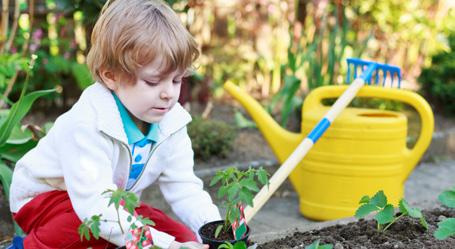
Family fun with National Children’s Gardening Week
This summer, why not get involved in National Children’s Gardening week?
Taking place from 25 May to 2 June, in the ‘warm’ half term at the end of May means that pretty much throughout the UK, children can plant all their favourite plants with less fear of weather damage or the need for complicated protective growing.
As well as simply good outdoor fun, gardening has been shown to have many benefits to health and wellbeing including being more physically active and feeling happier and more connected with the natural world. There are many ways to get involved with National Children’s Gardening Week from DIY activities at home, to attending an event at a local garden centre. More info: www.childrensgardeningweek.co.uk
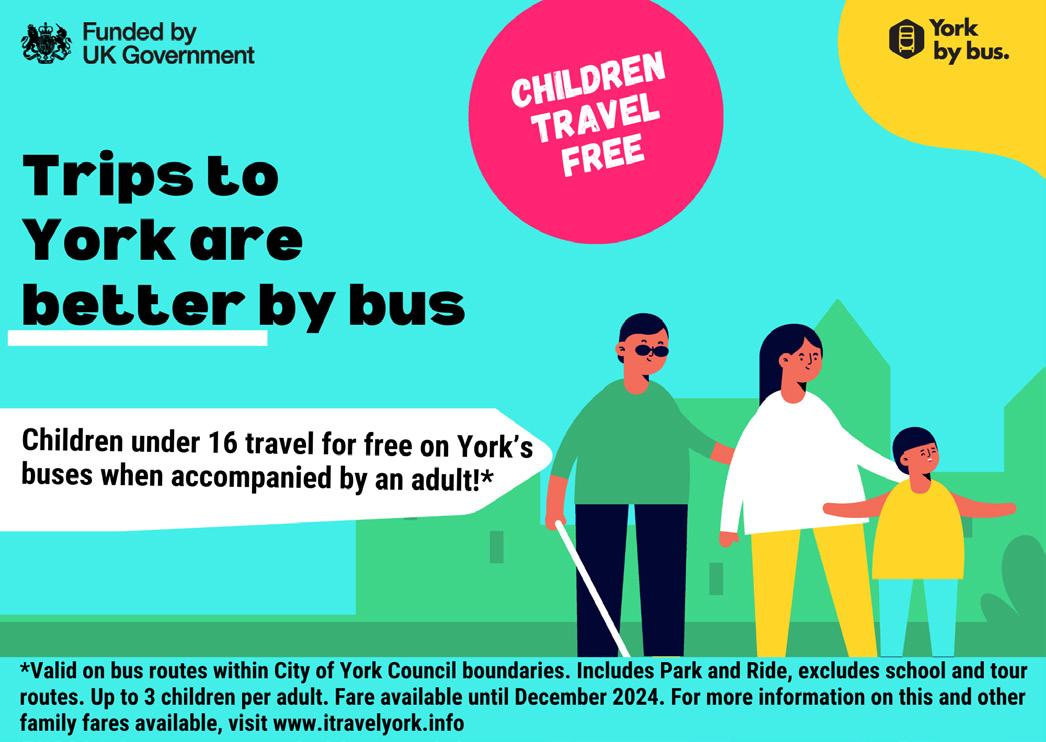
Familiesonline.co.uk Families North Yorkshire 11
NEWS
Involving your kids in social action
By Anoushka Freeman
In a world where compassion and empathy are invaluable qualities, parents play a crucial role in shaping their children into responsible and caring individuals. Engaging in social action with your children helps to instil these lifelong values and more. Plus it can be a great way to spend quality family time. Here’s how you can meaningfully involve your kids in social action.
Never too young to talk
Start conversations early. While young children might not grasp complex global issues, introducing the concept of kindness, empathy and helping others sets the foundation for a compassionate mindset. Use age-appropriate language and share stories that illustrate the power of positive actions.
Maximise everyday kindness
Use everyday activities. Teach your children the significance of small acts that make a difference, like picking up litter or turning off lights. These simple actions help normalise active citizenship.
Lead by example
Children learn best through example. Showcase the values you want to instil by actively participating in social action yourself. Whether giving to a charity, helping a neighbour or volunteering your time, your actions provide a powerful model for your kids to emulate. Wherever possible, take the opportunity to include your children in the activity. For example, if you are donating to charity, explain why you chose the charity and what impact your donation may have.
Explore different ways to help
Expose your children to a variety of social action opportunities such as going on litter picks or writing to MPs about causes they care about. This not only broadens their understanding of societal needs but also allows them to discover where their passions lie in making a positive impact.
Empower children to choose
Invite your children to choose a cause that resonates with them. Support them in researching, investigating and exploring different areas of interest. This empowers them to take ownership of their social action and enhances their critical thinking skills.
Commit to it
Establish a dedicated time for social action in your family routine. This commitment can be reinforced through accountability
Get inspired
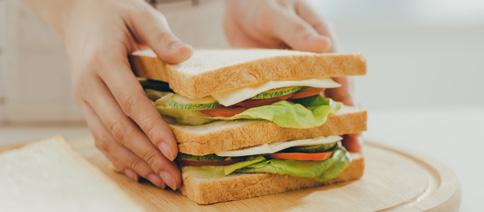
10-year-old Liam Hannon’s dad set him the challenge of doing something to give back to his community. After some discussion, Liam settled on helping homeless people. He enlisted his dad to help him make and distribute sandwiches, each with a special handwritten note or drawing.
By spreading the word to friends, family and through social media, donations and offers of help poured in. The duo has gone from distributing forty bags in their first week to hundreds of bags per week!
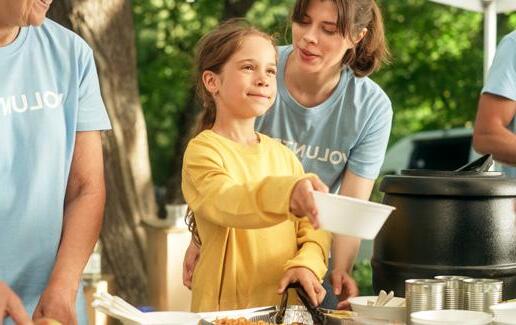
measures, such as creating a charity jar that accumulates funds in response to helping with chores around the house. This encourages consistency and also reinforces the value of sharing one’s time, treasure and talent to help others.
Make traditions
Incorporate social action into family traditions. Whether it’s creating Christmas shoeboxes, donating to a food bank or including a charity birthday wish list, these traditions instil a sense of purpose and giving that extends beyond individual actions.
Reflect and celebrate
Social action should not be a one-off event. Keep the conversation alive by discussing ongoing initiatives and celebrating their impact. This continuous dialogue helps children understand the long-term impact of their actions.
Spending time working towards a shared goal is a brilliant way to strengthen family connection. When that shared goal helps others, such as in the case of social action, you are also helping to nurture compassionate, responsible and socially aware individuals. These values will last for life; research shows that young people who engage in meaningful social action are twice as habitually philanthropic in later life.
So by following these practical steps, you are actively shaping the next generation of change-makers!
Anoushka Freeman represents www.superkind.org, the social action and charity platform for young people who want to be change-makers. Find free resources to help young people learn, be inspired and get empowered to make a positive difference to their communities and the world.
Benefits of social action

Studies have shown that social action has a vast array of benefits for young people who take part in it. It builds empathy, resilience, leadership and teamwork. It has been linked to higher grades and lower truancy and can help hugely with employability.
Research from the Cabinet Office showed that engaging in social action lowered anxiety levels in young people by over twenty percent. It’s even been shown to chemically contribute to happiness levels through the release of endorphins – the socalled ‘helpers’ high.’
Familiesonline.co.uk Families North Yorkshire 12 PARENTING
Seven ways to help your anxious child
By Poppy O’Neill
Seeing your child struggle with anxiety can be so difficult for parents and carers. Our instincts to protect our children kick in and while we may try to take away the source of our child’s worry, this can backfire in the long run.
Really supporting our children to understand and cope with feelings of anxiety means showing them compassion while empowering them to build resilience and it’s a tricky balance to strike! Here are some of my top tips for supporting children when they feel anxious.
Allow the feeling. Instead of trying to sweep away your child’s worries with logic or reassurance, acknowledge and show understanding for their emotions. You could say something like: ‘You’re feeling really worried, it’s so hard when you don’t know what’s going to happen next.’ When we show children that we see their emotions and we’re not upset or afraid of them, they’re reassured that they’re not alone and that emotions are not something they need to be afraid of.
Get moving. Movement, especially rhythmic movement like walking, dancing or jumping, is very powerful for calming anxiety. It soothes the parts of our brain that logic can’t reach and helps your whole body feel that bit less tense. If your child feels overwhelmed or is struggling to calm down, focus on getting their body moving first, rather than on talking it out.
Get your child to help you. Easy, low-stakes chores around the house are an excellent way to connect with your child, build their self-esteem and calm anxieties. When we have a simple, easyto-achieve task to focus on, it helps our brains let go of worries, even if just for a little while. What’s more, helping to care for our

Rise in measles prompts vaccination campaign
A national campaign to boost uptake of a vaccine that protects against measles has been launched in England after a rise in cases of the potentially deadly disease.
Measles outbreaks have occurred around the country, including in London, with the West Midlands experiencing cases at their highest level since the mid-1990s.
The situation has led the UK Health Security Agency (UKHSA) to declare a national incident, with health experts warning further outbreaks could occur in other towns and cities unless uptake of the measles, mumps and rubella (MMR) vaccine increases.
Figures from NHS England suggest more than 3.4 million children under the age of 16 years are unprotected against this trio of serious and preventable diseases.
The new campaign will encourage children who have not had MMR vaccinations to receive their missed doses.
More info: www.bit.lyNHSMeasles
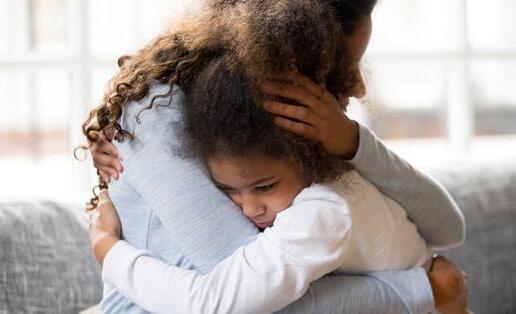
homes increases feelings of wellbeing and belonging, which are wonderful antidotes to anxiety.
Remind them of their capabilities. Anxiety can involve picturing the worst-case scenario and it’s tempting to dismiss these thoughts in an effort to reassure our kids. However, often facing the worst-case scenario head on is much more powerful. Even if your child’s fears aren’t rational, you can still chat about a plan for the eventuality they’re picturing. Whether it’s a zombie apocalypse or getting lost in a new school, you can have a conversation about what they would do, how they could handle challenges and who they could turn to for help.
One-on-one time. Having the undivided attention of one of their parents or carers is incredibly powerful for all aspects of children’s mental health. It doesn’t need to be a grand or complicated day out; taking them along to the supermarket or asking them to help you cook dinner is just as (if not more) effective. Frequency is key, so learn to spot these little opportunities for connection throughout the week and use them for some pressure-free bonding time.
Play. Studies have found that play helps us learn how to navigate the unexpected, so the more we play, the less anxiety we feel about the world around us. Naturally, play will look different depending on the age and interests of your child, so let them take the lead. Play can be anything from making up silly songs to card games to drawing; whatever fun, pressure-free activity your child can get absorbed in is going to be a brilliant antidote to stress and anxiety.
Take a deep breath. In times of anxiety, breathing can become shallow and erratic. Deep breathing helps release tension in the body, improves mood and promotes a sense of wellbeing. Teach your child to breathe slowly and deeply and you’ll give them a valuable relaxation tool they can use whenever and wherever they need it.
Anxiety is a part of being human. The key is to help our children recognise and understand how it works for them, rather than try to do away with anxious feelings altogether. Each interaction you instigate contributes to your child’s wellbeing and relationship with you. It can be hard but by boosting our children’s resilience and trusting them to navigate difficult emotions, they learn to trust themselves.
Poppy O’Neill has written several books on mental well-being for children and adults, including the bestsellers Don’t Worry, Be Happy and You’re a Star. Her most recent book How to Support Your Anxious Child is published by Vie.

Familiesonline.co.uk Families North Yorkshire 13 HEALTH
Get our digital mag! Sign up at familiesmag.co.uk/go IT’S FREE!
Hot water burns like fire
By Jenni Dunman
Did you know that hot water burns like fire? According to the British Burn Association, more than seven thousand children were burned or scalded in 2022 alone in England and Wales. This figure doesn’t include the thousands seen and discharged in A&E. These are the children who were so badly injured they had to be admitted to a Specialist Burns Unit.
Most accidents that cause burns and scalds to babies and children involve hot water. So let’s take a look at the risks within the home.
Hot drinks
Hot drink burns are all too common but easily preventable with these simple rules:
Keep hot drinks out of reach of young children. Place them at the back of the kitchen surface and never on a tablecloth or teatowel that a small child might reach and pull down; Never carry a hot drink whilst carrying a baby; Never pass a hot drink over the heads of children.
Hot water bottles
Hot water bottles can be dangerous and cause burns if they are not cared for or used safely. Rubber deteriorates over time so old hot water bottles can burst or leak and cause serious burns. Check for signs of wear and tear regularly. Look for the flower symbol, which indicates exactly when it was made and don’t use if it’s more than two years old. Never fill a hot water bottle with boiling water.
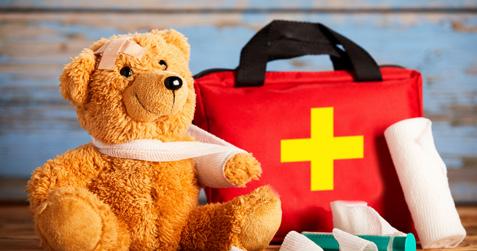
Top items for your home First Aid Kit
Digital thermometer. The NHS recommends under-arm thermometers for under 5s.
Ice pack. A top tip for when you’re at home is to pop a bag of marshmallows into a plastic food bag and freeze for an instant ice pack. Remember, never put ice directly on the skin; always wrap it in a tea towel before applying the cold compress.
Liquid paracetamol. Don’t forget that you can give your little one pain relief if they hurt themselves in an accident. It’s not just for when they have a fever and are unwell.
Alcohol-free wipes. Use to clean wounds before dressing them. A red flannel. When a child hurts themselves it can be scary to see lots of blood. Having something red to help mop it up can help disguise the severity of more nasty cuts.
It may also be useful to keep a basic first aid manual or instruction booklet with your First Aid kit.

Saucepan and kettle spills
It is important that children are not left alone around hot cooking surfaces; keep them out of the kitchen when cooking or preparing food and hot drinks. Always use the back burners on the hob when you can, turning handles in and keeping kettles and their cords out of reach of little hands.
Baths and showers
Hot water can pose a real danger. Bath and shower water can cause such bad burns that children need years of treatment and may be scarred for life. It only takes one second to get a deep burn in hot water when the water temperature is at 70°C. Always run cold water before hot and test the temperature with the back of your hand. Never leave a child alone in the bath, even for a second.
Jenni Dunman is CEO of Daisy First Aid (www.daisyfirstaid. com) which is an expert in baby and child First Aid. She’s a regular speaker at The Baby Show (www.thebabyshow.co.uk) which returns to NEC Birmingham 10-12 May, Manchester Central 7-9 June and Olympia London 25-27 October.

What to do if your child gets burned
It is important to act immediately if your child gets burned from any source. The most common sources of burns in the home are hot water and perhaps less predictably, picking up hair straighteners. Here are the steps to follow:
REMOVE any loose clothing or jewellery. Don’t remove anything that is stuck to the skin.
COOL the burn by holding it under cool (not freezing) running water for twenty minutes.
CALL for help by dialling 111 for advice or 999 in an emergency.
COVER the burn using cling film to keep it clean and get it checked by a medical professional. You can buy special burns creams and burns bandages from most pharmacies in the UK.
Finally: consider signing up to a baby and child First Aid course. This will give you practical skills which can make all the difference in an emergency. It’s the qualification you hope you’ll never need.
Familiesonline.co.uk Families North Yorkshire 14 EARLY YEARS
Birdnesting – a creative solution for your family?
By Hartlaw
When parents separate navigating decisions around looking after their children can be difficult and sometimes require more creative solutions. There is no right or wrong answer around how parents approach caring for their children post separation. One option that has become more popular in recent times is Birdnesting. In this article we look at “nesting arrangements” and the benefits and drawbacks.
Birdnesting What is it? A ‘bird nesting’ or ‘nesting’ agreement is an agreement which enables the children of the relationship to remain living in the family home with the parents ‘nesting’ –moving in and out of the property at separate times to care for them.
This is usually used as a temporary solution while the separating parents continue to share the family home as their main residence, or where one of the parents has moved out and is yet to set up a permanent home elsewhere.
Pros of nesting arrangement
It allows the children to be able to remain in their family home in familiar surroundings, providing them with stability; It provides the opportunity for both parents to work together, for there to be good communication between the parents and show a united and collaborative approach for the children, truly co-parenting.
It enables both parents to remain fully involved in their children’s lives and to continue to share their upbringing together; and It enables the children to remain at their current schools and for both parents to be involved.
Cons of a bird nesting arrangement
The arrangement might be confusing for children and unsettling as they don’t understand why their parents are living with them at different times and that they are no longer together as a couple.
Parents will need another property to live in when they are not with the children or find somewhere else to stay, which could mean that they are paying for and running two or three homes; Nesting arrangements need a large amount of trust between the parties, which makes it important for ground rules to be set. For example: What happens if either parent begins a new relationship? Who pays for food/bills when they are in the family home?
In most cases Nesting arrangements will become difficult long term and are only going to be used as short-term/ temporary plan. The Court has indicated in case law that these arrangements can work but should be seen as a short-term plan until more permanent solutions are found, and only where the parties are able to work together.
Every family is different, for some, a nesting arrangement works, for others it doesn’t. When thinking about looking after your children you need to always put their best interests first. We always suggest that independent advice is sought before entering into such an agreement to find out if it is likely to work for you and importantly, benefit your children.
If you do wish to enter into a nesting arrangement, writing the agreed terms in a document which both parties can refer to and follow is important to enable both parties to know what they can and can’t do whilst in the property. This can cover the practical requirements of finances and logistics.
If you require any advice or assistance in relation to bird nesting arrangements, or any other aspect of family law, please do not hesitate to contact us. Our family team can provide specialist advice and offer a free initial consultation.
Please do contact a member of our family team by calling 01937 547000 or by emailing info@hartlaw.co.uk


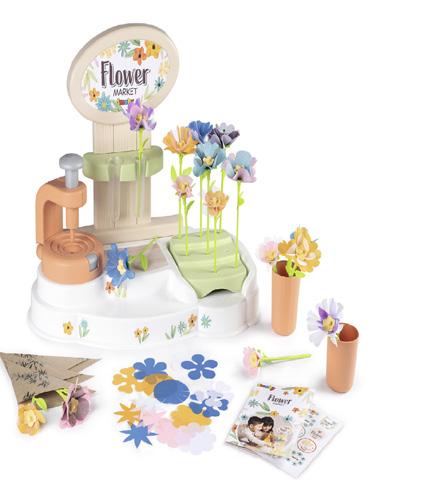
and construct flowers with Smoby Flower Market Creations Petals can be re-used plus refill packs available Includes flower press and flower parts
3+
Familiesonline.co.uk Families North Yorkshire 15 FAMILY LAW
Smoby Flower Market Creations Kit Giveaway Worth £39.99 APPLY at familiesmag.co.uk/go T&Cs apply
Ages
Design
Eco birthday gifts
By Tamsin Ryan
At a time when we are all trying to reduce the amount of plastic we consume, it seems toymakers and our little ones are against us every step of the way, filling our homes with plastic toys and gadgets everywhere we look. Moreover, these colourful and joyous pieces of plastic often provide precious little fun before they are pushed aside for the next in line.
When the inevitable birthday party season comes along, gifting something that is a little kinder to the planet might also provide some longer lasting fun.
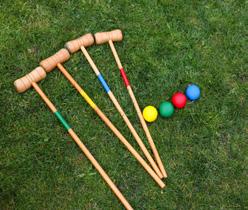
Garden games are a long standing favourite gift. They are great for getting kids outside and provide the opportunity for lots of family fun. Lovely wooden games such as quoits, Jenga and skittles will provide years of fun and last a lifetime.

Books are often overlooked but can be such meaningful and enjoyable gifts. Favourite stories can be read and loved again and again and then passed onto siblings, friends or the next generation. Alternatively, a book token gives children the fun of browsing a real bookshop.
No presents! If you are having a party for your child, you may just want to ask for no presents at all, if you feel your child has more than enough. Alternatively, ask everyone to bring along a book that they have enjoyed reading and then do a book swap, so everyone goes home with a gift.

Preloved gifts are also a great option. As children often outgrow their toys before they really get a chance to play with them, you can find plenty of preloved toys that are like new. You save money, kids barely know the difference between new and preloved and aren’t bothered anyway. Try nearly new sales, charity shops or school fairs. If you’re short on time, www.rumage. com can search all your favourite marketplaces for you and filter by location so you can find a seller nearby, saving on postage.
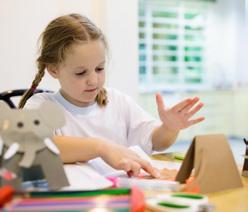
Lasting gifts. A subscription is a gift that keeps on giving, perhaps a monthly magazine or a craft box.


Non-physical gifts. Instead of stuff and more stuff, consider a fun day out or an experience that the whole family can enjoy or some dance, music or sports classes. Another idea is an annual (family) membership to a local amusement park, museum or similar, which means your gift can be enjoyed again and again throughout the year.

‘Fiver’ parties are also rising in popularity and it’s easy to see why. They reduce the pressure on parents to search for the perfect gift and also mean the birthday child can use the combined monies to buy a meaningful gift that they would really like.
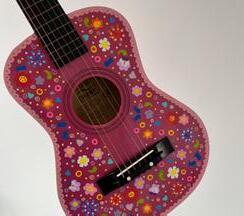
Handmade and upcycled presents add a really personal touch. You can make something bespoke that will be unique to the lucky recipient. Previously I’ve upcycled a scooter and a guitar for my daughter, which have been loved and adored.
Whatever gift you decide to go with, by consciously avoiding new plastic and making sustainable choices, your biggest gift will be to the planet - and thus the future of the birthday child. What more could they ask for?
Familiesonline.co.uk Families North Yorkshire 16
BIRTHDAYS
BIRTHDAYS
For more birthday tips, read Tamsin’s blog at www.icecreamandjelly.com or check out her Instagram page @icecreamandjelly_uk BIRTHDAYS Families North Yorkshire 16




































































